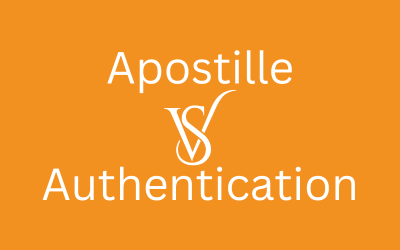No matter where you’re buying a rental property, protecting that investment is important. Many real estate investors who own rentals choose to set up each of their properties as a Limited Liability Company (LLC). Doing so helps protect their personal assets from mishaps or accidents at their rental locations.
But do you really need an LLC for rental property in another state? And, where is it most advantageous to register an LLC when buying real estate property out of state? Is it in the investor’s home state or where the rental property resides?
In this article, I’ll provide some food for thought when deciding where to form an LLC for a rental property in another state. Ultimately, though, it’s critical to get a lawyer’s guidance on the matter. Different states have different laws, and every real estate investor’s situation is in some way distinct. Therefore, no single approach is right for every property owner.
Below, I’ve listed some things to think about registering an LLC for a rental home or business property in another state.
1. What are the Nexus rules in the state where the property is located?
If the state considers the act of renting property in its jurisdiction as “doing business,” the LLC must be registered there — either as a domestic LLC or a foreign LLC. By the way, most states view renting real estate as conducting business. Without the state and local authorities’ approval, courts will not acknowledge the liability protections of the LLC and the LLC owner can face penalties and fines.
2. What’s the difference between a domestic LLC and foreign LLC for real estate investments?
A domestic LLC is officially created by filing Articles of Organization (sometimes called a Certificate of Organization) in the state where the property resides. The LLC must abide by all the laws and compliance requirements of the state.
A foreign LLC is an LLC that was officially created in a different state (its home state) and, through a process called “foreign qualification,” becomes authorized to expand its business operations in the state where the rental property is located. In this situation, the LLC must abide by the laws and regulations within its home state for its business there and its business running the out-of-state rental property must comply with the laws and regulations of the state where it’s foreign qualified.
Generally, forming a domestic LLC in the state where the rental property exists is most straightforward and less complex. However, realize that may not be so in every situation. I recommend that property owners discuss the options with an attorney and tax advisor because of the legal and tax-related nuances of their specific situation.
3. What are the potential advantages and disadvantages of registering a new LLC in the rental property’s state vs. foreign qualifying an existing LLC?
As I mentioned earlier, an investor may opt to put their out-of-state rental property’s title under an LLC in their home state by foreign qualifying that LLC in the state where the rental property is located.
Foreign qualification alleviates some of the formalities and costs of creating an entirely new LLC to cover the property. However, some drawbacks may arise.
For example, consider this hypothetical scenario:
An LLC formed in California has foreign qualified to do business in Colorado, where the LLC owner has purchased a rental property. Someone visiting the Colorado rental property slips and falls on the home’s icy patio, bringing a lawsuit against the property. In this situation, all of the LLC’s assets (not just those associated with the Colorado property) could be fair game as compensatory damages awarded to the plaintiff. Alternately, if the property owner were to form a separate LLC in Colorado for the rental property, only the Colorado LLC would be liable. The California LLC’s assets would be legally separate and not liable for what happens at the rental property.
4. What is the nature of the state’s business regulatory environment?
Some real estate investors choose to register their LLCs in a state with favorable legal and tax regulatory environments rather than where they or their property are physically located. This may be beneficial for property owners who find they do not have to register or foreign qualify their LLC in the state where their rental property resides.
However, drawbacks exist to “forum shopping” for the most advantageous laws and tax codes.
For instance, let’s say someone forms an LLC in Delaware, which is considered a pro-business state (due to its flexible business compliance laws), to hold the title for a rental property in Ohio. The LLC owner will likely have to foreign qualify the LLC in Ohio because that’s where the business of renting the property is being conducted. So, Ohio’s laws and tax rules (not Delaware’s) will apply to the property, and the LLC will need to file reports, prepare tax returns, and fulfill other compliance requirements in both states. This creates more work than if the property owner had formed the LLC in Ohio.
5. Does the real estate investor have multiple properties?
I’ve recently written about ways to structure a business with multiple properties. Among them are registering separate LLCs for each property, creating a series LLC, and forming a real estate holding LLC (parent company) with child LLCs beneath it for individual properties. When an investor has multiple properties, especially if the properties are in different states, the tax and legal considerations can become complex. It’s wise for investors to get guidance from an attorney and tax expert so they can make an informed decision about how to structure their investments.
Ready to form or foreign qualify an LLC for your rental property? Contact us to help you with all your filing and compliance needs!
Form an LLC With CorpNet
Forming an LLC is simple with CorpNet. Our online application offers upfront pricing and no unwanted upsells. Registering your new Limited Liability Company with CorpNet is quick and your satisfaction is guaranteed.*





